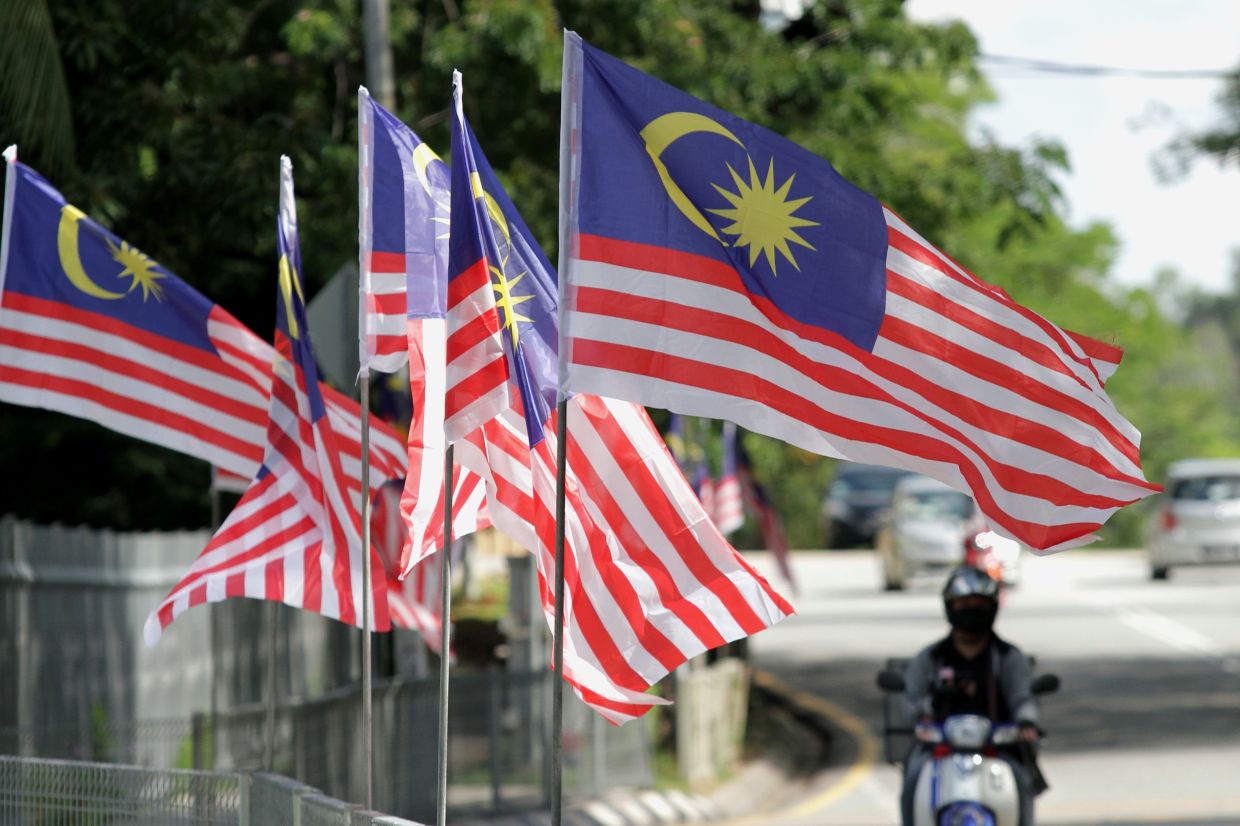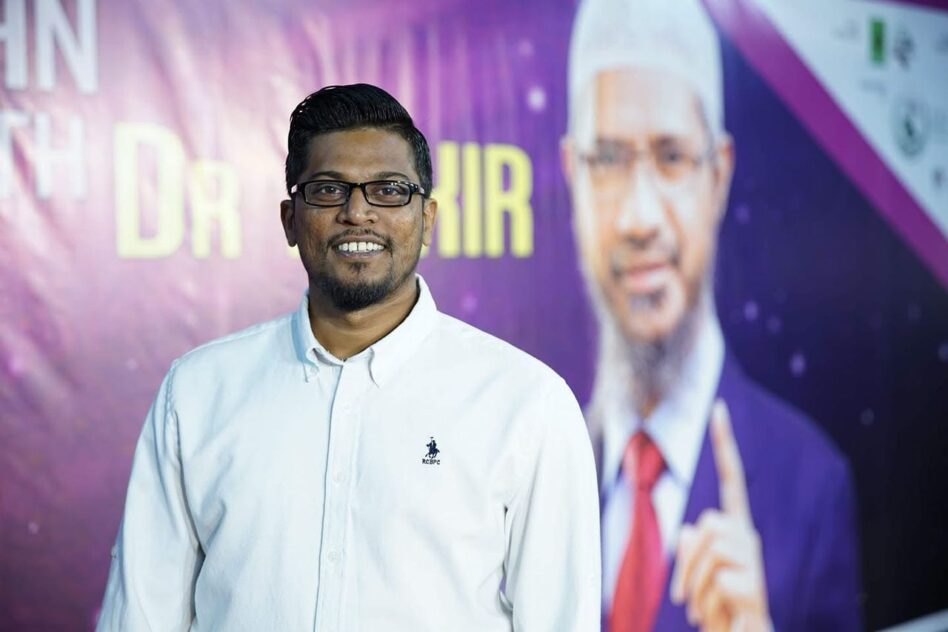
Why are recent converts to Islam in Malaysia critical of their own race and religion of origin?
By KT Maran
2 hours ago

OF LATE, Malaysians are faced with dichotomies from new converts to Islam from the Indian and Chinese origin who humiliates and insults their religion and race of origin.
The perception that Islam is defended in Malaysia by targeting non-Muslims as a “punching bag” is a unique socio-political and historical in its context.
Though religious tensions exist in many parts of the world, Malaysia’s situation is shaped by several factors which must be addressed by the government to bring peace and unity.
But why is this the case?
In Malaysia, Islam is often intertwined with politics. Some politicians and groups may use religious issues to rally support, sometimes framing non-Muslims as a threat to Malay-Muslim identity to consolidate power.
Unlike the ethnic and religious demographics unlike many other Muslim-majority countries, Malaysia has a significant non-Muslim population, leading to a unique dynamic where religious debates can take on ethnic overtones.
The constitutional frame work in Malaysian recognises Islam as the religion of the federation while guaranteeing freedom of religion. However, interpretations of this clause sometimes create friction, particularly when legal disputes arise between civil and Shariah courts.
The sensationalism in media and political rhetoric and discourse can amplify religious tensions, making it seem as though non-Muslims are being targeted when, in reality, the situation is often more nuanced.
While religious controversies exist globally, Malaysia’s unique ethnic-religious-political mix makes it stand out. However, it is worth noting that many Malaysians, both Muslim and non-Muslim, work towards peaceful coexistence and interfaith understanding despite political rhetoric.
The phenomenon of some new converts to Islam publicly criticising their former religion or faith can be seen in different contexts worldwide, not just in Malaysia. However, the way it happens in Malaysia might be influenced by several unique factors.
The emotional zeal many new converts experiences brings a strong emotional and spiritual transformation. Some feel the need to justify their conversion by rejecting or criticising their past beliefs. This is not unique to Islam; converts to any faith can sometimes become its most vocal defenders.
In some countries, religious groups or individuals may encourage new converts to publicly criticise their former religion as a way of “proving” their sincerity and commitment to their new faith.
2 hours ago

OF LATE, Malaysians are faced with dichotomies from new converts to Islam from the Indian and Chinese origin who humiliates and insults their religion and race of origin.
The perception that Islam is defended in Malaysia by targeting non-Muslims as a “punching bag” is a unique socio-political and historical in its context.
Though religious tensions exist in many parts of the world, Malaysia’s situation is shaped by several factors which must be addressed by the government to bring peace and unity.
But why is this the case?
In Malaysia, Islam is often intertwined with politics. Some politicians and groups may use religious issues to rally support, sometimes framing non-Muslims as a threat to Malay-Muslim identity to consolidate power.
Unlike the ethnic and religious demographics unlike many other Muslim-majority countries, Malaysia has a significant non-Muslim population, leading to a unique dynamic where religious debates can take on ethnic overtones.
The constitutional frame work in Malaysian recognises Islam as the religion of the federation while guaranteeing freedom of religion. However, interpretations of this clause sometimes create friction, particularly when legal disputes arise between civil and Shariah courts.
The sensationalism in media and political rhetoric and discourse can amplify religious tensions, making it seem as though non-Muslims are being targeted when, in reality, the situation is often more nuanced.
While religious controversies exist globally, Malaysia’s unique ethnic-religious-political mix makes it stand out. However, it is worth noting that many Malaysians, both Muslim and non-Muslim, work towards peaceful coexistence and interfaith understanding despite political rhetoric.
The phenomenon of some new converts to Islam publicly criticising their former religion or faith can be seen in different contexts worldwide, not just in Malaysia. However, the way it happens in Malaysia might be influenced by several unique factors.
The emotional zeal many new converts experiences brings a strong emotional and spiritual transformation. Some feel the need to justify their conversion by rejecting or criticising their past beliefs. This is not unique to Islam; converts to any faith can sometimes become its most vocal defenders.
In some countries, religious groups or individuals may encourage new converts to publicly criticise their former religion as a way of “proving” their sincerity and commitment to their new faith.

(Image: The Edge)
In Malaysia where religion and politics are closely linked, some political or religious figures may exploit new converts to push certain narratives. A convert’s testimony can be used to validate claims that Islam is superior to other religions.
Some converts may feel pressure to prove their loyalty to their new religious community. Criticising their former faith can be a way to gain acceptance, validation and affirmation from their new peers.
The media sensationalism of stories of conversion and religious “debates” attract public attention. Some media outlets, religious organizations, or online platforms might highlight these narratives to influence public opinion.
In the historical and cultural context of the multi-religious societies like Malaysia, religious identity is often tied to ethnic identity. Conversion can be seen as a sensitive issue, and some converts feel the need to distance themselves from their past, sometimes by attacking it.
Zamri Vinoth and Ridhuan Tee Abdullah are examples of high-profile converts to Islam in Malaysia who have been vocal in criticising their former religions. Their cases highlight a broader pattern where certain converts publicly denounce their previous faiths, often in ways that spark controversy.
The social-political landscape in Malaysia’s makes religious issues highly sensitive. Some Islamic organisations and political figures see vocal converts as useful in reinforcing Islamic supremacy, especially within the Malay-Muslim majority.
The converts who actively criticise their former faith may be given platforms by certain groups to validate claims that Islam is superior.
Some converts find that being outspoken against their past religion grants them recognition, influence, social status, support, and sometimes financial backing from religious or political entities.
Figures like Zamri Vinoth have used their platforms to establish themselves as religious speakers, gaining followings among conservative Muslim groups.
The backlash and reactionary responses they receive from their former religious communities sometimes reinforces their positions.
If they are attacked or threatened, it strengthens their beliefs that they were right to leave their former religions. In contrast, converts who quietly practice their new faith without attacking their past rarely gain media attention.
There is a tendency for legal and social protection for criticism of non-Islamic religions in Malaysia while laws against blasphemy and religious insult disproportionately protect Islam.
While criticisms of Islam can lead to legal consequences (e.g., the Sedition Act and Penal Code 298A), criticisms of other religions by Muslim converts often go unpunished.
This legal imbalance allows figures like Zamri Vinoth and Ridhuan Tee to speak aggressively without facing the same consequences that non-Muslims would if they criticised Islam.
In Malaysia where religion and politics are closely linked, some political or religious figures may exploit new converts to push certain narratives. A convert’s testimony can be used to validate claims that Islam is superior to other religions.
Some converts may feel pressure to prove their loyalty to their new religious community. Criticising their former faith can be a way to gain acceptance, validation and affirmation from their new peers.
The media sensationalism of stories of conversion and religious “debates” attract public attention. Some media outlets, religious organizations, or online platforms might highlight these narratives to influence public opinion.
In the historical and cultural context of the multi-religious societies like Malaysia, religious identity is often tied to ethnic identity. Conversion can be seen as a sensitive issue, and some converts feel the need to distance themselves from their past, sometimes by attacking it.
Zamri Vinoth and Ridhuan Tee Abdullah are examples of high-profile converts to Islam in Malaysia who have been vocal in criticising their former religions. Their cases highlight a broader pattern where certain converts publicly denounce their previous faiths, often in ways that spark controversy.
The social-political landscape in Malaysia’s makes religious issues highly sensitive. Some Islamic organisations and political figures see vocal converts as useful in reinforcing Islamic supremacy, especially within the Malay-Muslim majority.
The converts who actively criticise their former faith may be given platforms by certain groups to validate claims that Islam is superior.
Some converts find that being outspoken against their past religion grants them recognition, influence, social status, support, and sometimes financial backing from religious or political entities.
Figures like Zamri Vinoth have used their platforms to establish themselves as religious speakers, gaining followings among conservative Muslim groups.
The backlash and reactionary responses they receive from their former religious communities sometimes reinforces their positions.
If they are attacked or threatened, it strengthens their beliefs that they were right to leave their former religions. In contrast, converts who quietly practice their new faith without attacking their past rarely gain media attention.
There is a tendency for legal and social protection for criticism of non-Islamic religions in Malaysia while laws against blasphemy and religious insult disproportionately protect Islam.
While criticisms of Islam can lead to legal consequences (e.g., the Sedition Act and Penal Code 298A), criticisms of other religions by Muslim converts often go unpunished.
This legal imbalance allows figures like Zamri Vinoth and Ridhuan Tee to speak aggressively without facing the same consequences that non-Muslims would if they criticised Islam.

Zamri Vinoth (Image: UtusanTV)
The responses of different religious groups in Malaysia to high-profile Muslim converts who criticize their former faiths vary widely, depending on their leadership, legal standing, and community.
Organisations like the Malaysian Consultative Council of Buddhism, Christianity, Hinduism, Sikhism, and Taoism (MCCBCHST) advocate for legal protections against religious incitement.
Meanwhile, secular and human rights groups such as Sisters in Islam (SIS) and Bersih emphasise freedom of religion and equal legal enforcement.
They challenge the double standards in how religious speech is regulated—demanding that if non-Muslims can be punished for blasphemy, the same rules should apply to converts criticising other religions.
The Malaysian government often prioritizes Islamic concerns over interfaith fairness. The calls for legal reforms are sometimes framed as “anti-Islam” efforts, making progress difficult.
The government can address the above concerns by having stronger legal protections for all religions to prevent hate speech and religious provocation.
There must be genuine interfaith dialogue where all parties are given equal respect and voice, as well as public education on religious tolerance to counter misinformation spread by converts who attack their former faith. – April 2, 2025
KT Maran is a Focus Malaysia viewer.
The responses of different religious groups in Malaysia to high-profile Muslim converts who criticize their former faiths vary widely, depending on their leadership, legal standing, and community.
Organisations like the Malaysian Consultative Council of Buddhism, Christianity, Hinduism, Sikhism, and Taoism (MCCBCHST) advocate for legal protections against religious incitement.
Meanwhile, secular and human rights groups such as Sisters in Islam (SIS) and Bersih emphasise freedom of religion and equal legal enforcement.
They challenge the double standards in how religious speech is regulated—demanding that if non-Muslims can be punished for blasphemy, the same rules should apply to converts criticising other religions.
The Malaysian government often prioritizes Islamic concerns over interfaith fairness. The calls for legal reforms are sometimes framed as “anti-Islam” efforts, making progress difficult.
The government can address the above concerns by having stronger legal protections for all religions to prevent hate speech and religious provocation.
There must be genuine interfaith dialogue where all parties are given equal respect and voice, as well as public education on religious tolerance to counter misinformation spread by converts who attack their former faith. – April 2, 2025
KT Maran is a Focus Malaysia viewer.
In the case of bolihland - to prove one's allegiance to the new faith aka more melayu than the melayu.
ReplyDelete